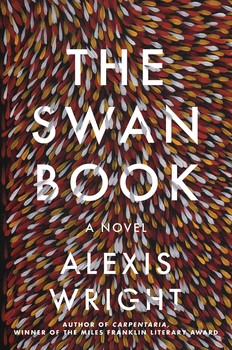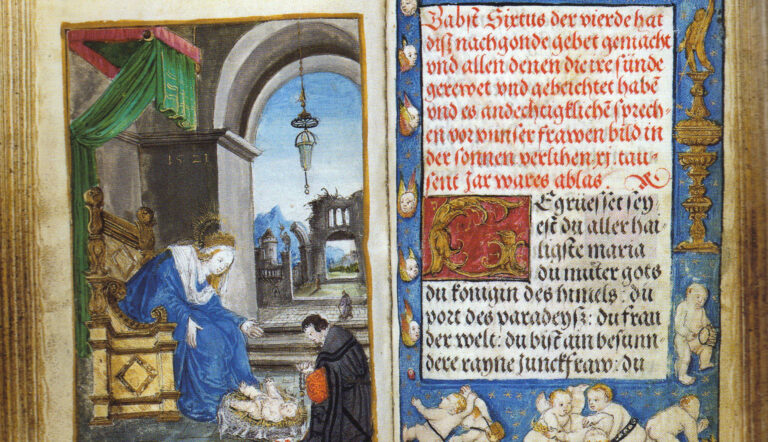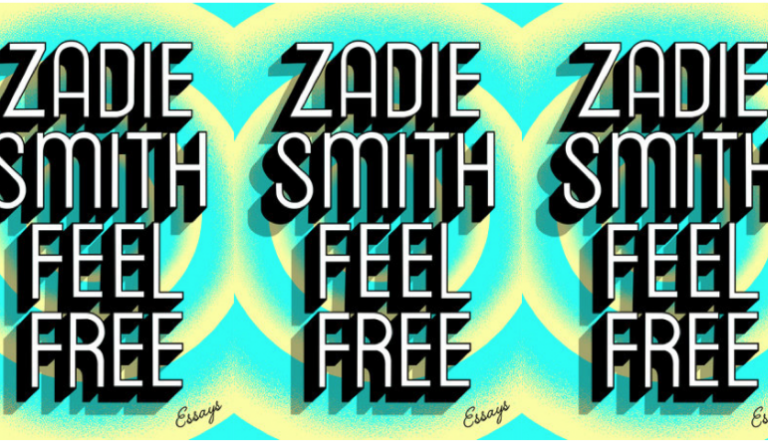THE SWAN BOOK Is Australian Aboriginal Dystopian Lit

Australian Aboriginal novelist Alexis Wright’s latest offering, The Swan Book, brings us a dystopian satire with touches of magical realism. The futuristic tale takes place in Australia after climate change has ruined the world and sects of people (truck people, swamp people, city people) are still trying to break through the propaganda of assimilation to the colonists. “Having lived it all, they claimed to have at least ten, or possibly more generations of knowledge, packed up tight in their mentality about white people doing good for them.”
One might say The Swan Book is a tale of centuries of colonization—of land rights, gender rights, and mental sovereignty, and white-is-right propaganda. Wright does not, however, make it a victim’s tale. Her pen is just as likely to point the nib of culpability at those who use colonial oppression as an excuse for their own sloth. “They blamed the Army men and the white controller for being the racists that they were.”
Primary characters include Bella Donna of the Champions, an ancient woman whose words of wisdom linger until she fades off until the realm of irretrievable time. Her fading away could be seen as a metaphor for the evaporation of world languages as English dominates. She also reminds us of the value and tradition of oral storytelling among indigenous peoples. “Where I come from…” says Bella Donna, who bears an “old European accent” though she speaks through her mind rather than her mouth, “The rich people were flying off in armadas of planes like packs of migratory birds. The poverty people like myself had to walk herdlike, cursed from one border to another through foreign lands and seas.”
Having found protagonist Oblivia (Oblivion) Ethyl(ene) in the trunk of a tree, Bella Donna raises her as a daughter, with proper manners and all. It’s not clear whether dark-skinned Oblivia is a teenager or an under-developed woman. She does, however elicit numerous fairy tales, for example Little Red Riding Hood. She is plucked by Deputy President of the Government of Australia Warren Finch, supposedly her arranged husband, from the comfort of the swamp, the place she called home.
Finch is a half-caste with a power as great as the United Nations, an icon of the ease and benefits of assimilating to the white Australian way of life. “He was the lost key. He was post-racial. Possibly even post-Indigenous. His sophistication has been far-flung and heaven-sent. Internationally Warren. Post-tyranny kind of man. True thing!”
He takes her along with him and his secret service men who may or not be paid assassins, planting his flag in his wife’s mind, blocking her ability to think for herself, stealing her mental sovereignty. This is a particularly curious though perhaps not fully developed part of the already thinly-plotted book, and it raises questions about the author’s implication of gender rights and the myth of male dominance. Questions also arise of whether Oblivia will fall in love with Warren. Along the way Oblivia communicates with all the swans of the world, which opens the door to a great number of myths that Wright seems to have scoured the world and centuries to find.
“The girl fought back by reciting, in Bella Donna’s high-tilting voice, the many swan maiden fantasies that have vanquished men who hunt swans….Stories she knew well about escaping. Screams these into Finch’s face to cover the sound of his voice.”
If this climate-change dystopia were recreated into a cinematic version it’d be shot dark, House of Cards dark. It’d take a director like Nicolas Winding Refn to capture the multiple layers of colonialism—especially to enter the psychology of these characters who, despite the Apocalypse, are still subjected to political propaganda and bureaucrats. It’d take every linguistic device in the Coen Brothers’ corpus to capture Wright’s admittedly sometimes frustrating cacophony of musical and poetic references, the intermingling of her native language, the flapping and whooshing of thousands of migrating and diving swans, and bits and pieces of conversations and fairy tales and legends that telepathically traverse Oblivia’s mental landscape. While this cacophony rarely reaches literary discord, it feels like tapping Morse code on the brain of a reader already saturated by noises outside the book. The reader may find it hard to distinguish if the book is lingering in her mind or if she is indeed hearing voices.
A member of the Waanyi nation of the southern highlands of the Gulf of Carpentaria, Wright’s earlier novel Carpentaria won the Miles Franklin Literary Award and was published in several countries. The Swan Book was released in June in the U.S. by Simon and Schuster.
Interested in exploring other Australian aboriginal stories? Netflix is showing a fantastic Aussie series, The Gods of Wheat Street. Here is a list of classic aboriginal films.


